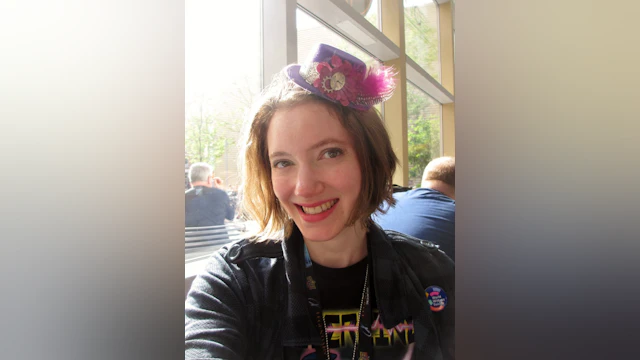International Survivors of Suicide Loss Day, also known as Survivor Day, takes place each year on the Saturday before American Thanksgiving, with virtual and in-person events in communities everywhere. Learn more and find an event near you.
On Saturday, November 17th, International Survivors of Suicide Loss Day, I participated in the American Foundation for Suicide Prevention’s local Survivor Day event in Pittsburgh. (Hundreds of Survivor Day events take place across the world each year.) It was my fourth time attending this event, but my first time as a volunteer.
As I helped people sign in, the range of people’s experiences – how long it had been since they had lost someone to suicide – really struck me. One person had lost a loved one seventeen years earlier. Others were still in the immediate stages of grieving, from just one or two months prior to the event.
I remember being part of the latter category. Back in 2014, I had come to the event with two friends, just seven weeks after my boyfriend had died by suicide. The three of us were in such despair. Reaching out in this way, by attending the event, felt at the time like the one thing that made sense in a world gone mad. Ours had been the freshest loss that year and though in some ways it was difficult to be there, people went out of their way to be kind to us and tell us how glad they were we had come.
Four years later, I have a greater understanding of how those people must have felt for us. I catch snippets of conversation from those with a recent loss. I know them without knowing them, their trembling voices and tears all too familiar to me.
We began with a screening of “A Daughter’s Journey,” AFSP’s most recent Survivor Day documentary. (Information on previous films can be found here.) This latest documentary follows a young woman named Sarah who had lost her father at a young age, and shows how she has coped with her loss, and honors his memory. In response to the short film, attendees expressed their own experiences and feelings in terms of various aspects of grief, such as how to recognize significant events, such as a school event or a graduation, without their loved one.
Discussions continued further, moderated by a family therapist, Rogna Jurecko, who spoke about the different, often conflicting and confusing emotions people may experience in the wake of a suicide loss. She also discussed how loved ones and acquaintances may sometimes say things that – while very well intentioned – can make the person grieving loss feel worse. Comments like, “Well, you still have your children” or, “He’s in a better place” are meant to be comforting but ignore the very real sting of a death. I can relate. Although I’ve never felt anger toward people meaning to comfort me with comments like these, I had personally heard the statement, “You’ll find love again,” far too many times after losing my boyfriend.
We also discussed how different coping methods work for different people. Rogna related a story in which two different women had each lost a husband to suicide. One couldn’t bear to take off her wedding ring, because it helped her feel close to her husband. The other woman strongly felt the need to remove hers, because for her, it made the pain of her husband’s death worse. Rogna emphasized that we should all find healthy means to cope that work best for us, even if others do not understand. We then heard more survivor stories from volunteers Shari Novalis and Colleen Sybert, who had each lost a sibling to suicide.
Attendees were then split up into smaller discussion groups, each categorized by the specific type of loss: the loss of a parent, the loss of a sibling, etc. I was the group facilitator for the loss of a friend group. This was my first time, and I was extremely nervous beforehand, afraid I might say or do the wrong thing. But the conversation felt helpful: everyone in the group had things they needed to say, and afterwards, expressed feeling comforted by the feelings that were shared. It seemed as though even the participants who didn’t share, gained much from simply listening.
When I try to think of how to encapsulate why going to these Survivor Day events feels so worthwhile to myself and so many others, I think back to the discussion following the screening of “A Daughter’s Journey.” The audience was asked if they took away anything comforting from young Sarah’s story.
A woman raised her hand to share the following simple thought: “She’s okay,” she summed up.
Every person in that room was full of heartache for those no longer beside us. But amidst the stories, the greater understanding of suicide, and the shared emotions, we were all okay for those few hours because we were together. The event gave hope to those with recent losses that the fog of their grief would one day begin to clear.
Thinking back to four years ago, when I attended my first Survivor Day event, I remember feeling that things would never be alright again. There are still times when I feel the pain of my loss very strongly… but now, I am okay.
I’m okay.
To learn more about AFSP’s annual Survivor Day events, click here.
To find an AFSP chapter near you, and learn about other local resources, click here.
